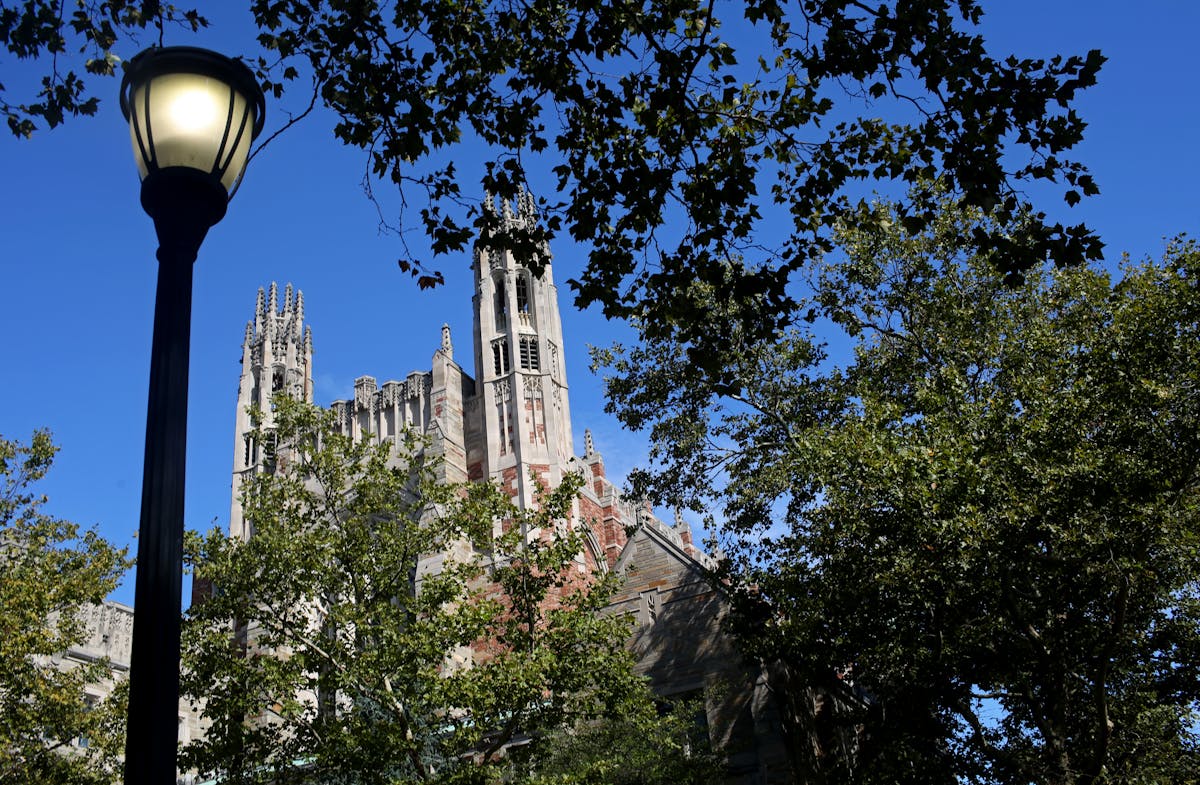Yale Law School Students Sue the Federal Government for Failing To Provide Gender-Altering Surgeries to Military Vets
‘For so many of the over 163,000 transgender veterans, gender-confirmation surgery is essential and often lifesaving medical care,’ the Yale students claim.

A law clinic at liberal Yale Law School is suing the U.S. Department of Veterans Affairs’ medical care system, seeking to force it to perform sex changes and other gender-altering surgeries.
The lawsuit was filed in a federal appeals court on January 25 on behalf of the Transgender American Veterans Association. According to the clinic’s website, it is “seeking a court order” to compel the VA to provide “gender-affirming surgery.”
The lawsuit comes after the veteran affairs secretary, Denis McDonough, announced in 2021 that the veterans’ healthcare system would start offering the procedures. That has yet to occur, and the Yale students noted in a press release shortly before filing the suit, “Despite repeatedly stating his commitment to fulfilling TAVA’s request, Secretary McDonough has not formally responded to the rulemaking petition.”
“For so many of the over 163,000 transgender veterans, gender-confirmation surgery is essential and often lifesaving medical care,“ they added.
The Yale law clinic suing the government, the Veterans Legal Services Clinic, claims to “assist groups that are marginalized within the military, such as Black and Latinx veterans, women and immigrants, LGBTQ+ veterans, veterans with disabilities, and survivors of military sexual trauma.” Yale Law students serve as “interns” in the clinic, working with attorneys while they are supervised by law school faculty.
Among the other law clinics offered by the Ivy League law school are those focused on liberal causes such as “mass incarceration,” employee and immigration rights, and mental health justice.
The clinic’s litigation comes amid increased scrutiny by House Republicans of elite universities, which they accuse of ideological biases. Although Yale is a private institution, federal government grants are its second-largest source of funding.
In particular, legal clinics have long been the target of lawmakers for using state funds to sue their own providers. After engaging in litigation against their own state in 1981, the University of Tennessee Law School prohibited clinics from suing the school, under pressure from trustees and state legislators. In 1993, Oregon’s legislators defunded their flagship state university law school’s clinic, forcing it to move off campus and operate as a public-interest law firm.
Even among private universities, such as Yale, state legislators have repeatedly sought to tamp down on legal clinics for what some deem to cause cumbersome lawfare. Between 1993 and 1997, state legislators in Louisiana sought on three separate occasions to curb the activities of the legal clinic at a private New Orleans University, Tulane, ultimately resulting in the state supreme court regulating the school’s legal clinic’s practices.
In a press release from the Transgender Veteran Association, a member of the organization, Natalie Kastner, was quoted as saying that the VA’s “failure to provide gender-confirmation surgery has been more dangerous for me than my time in the service.” She added: “Without VA coverage for this surgery, I was financially out of options. I tried to perform my own gender-affirming surgery at home, without any medical training. Were it not for emergency room care, I would have lost my life. I was told that the VA would take care of me because I was willing to risk my life for this country. Instead, I was safer in the service than I am now.”
One Yale Law student who participates in the clinic, K.N. McCleary, defended the clinic’s decision to focus on transgender medical care issues, writing, “Major medical associations agree that gender-affirming surgery is an essential part of transgender care.”
She added, “Forcing transgender veterans to pay out of pocket for these often prohibitively expensive procedures, while providing these same procedures to cisgender veterans to treat different conditions, is out of step with the VA’s commitment to care for all veterans.”
Currently, the VA hospitals and medical care facilities provide gender transition-related procedures, including hormone therapy, voice training, and hair removal. Yet the system does not provide genital and breast procedures.

